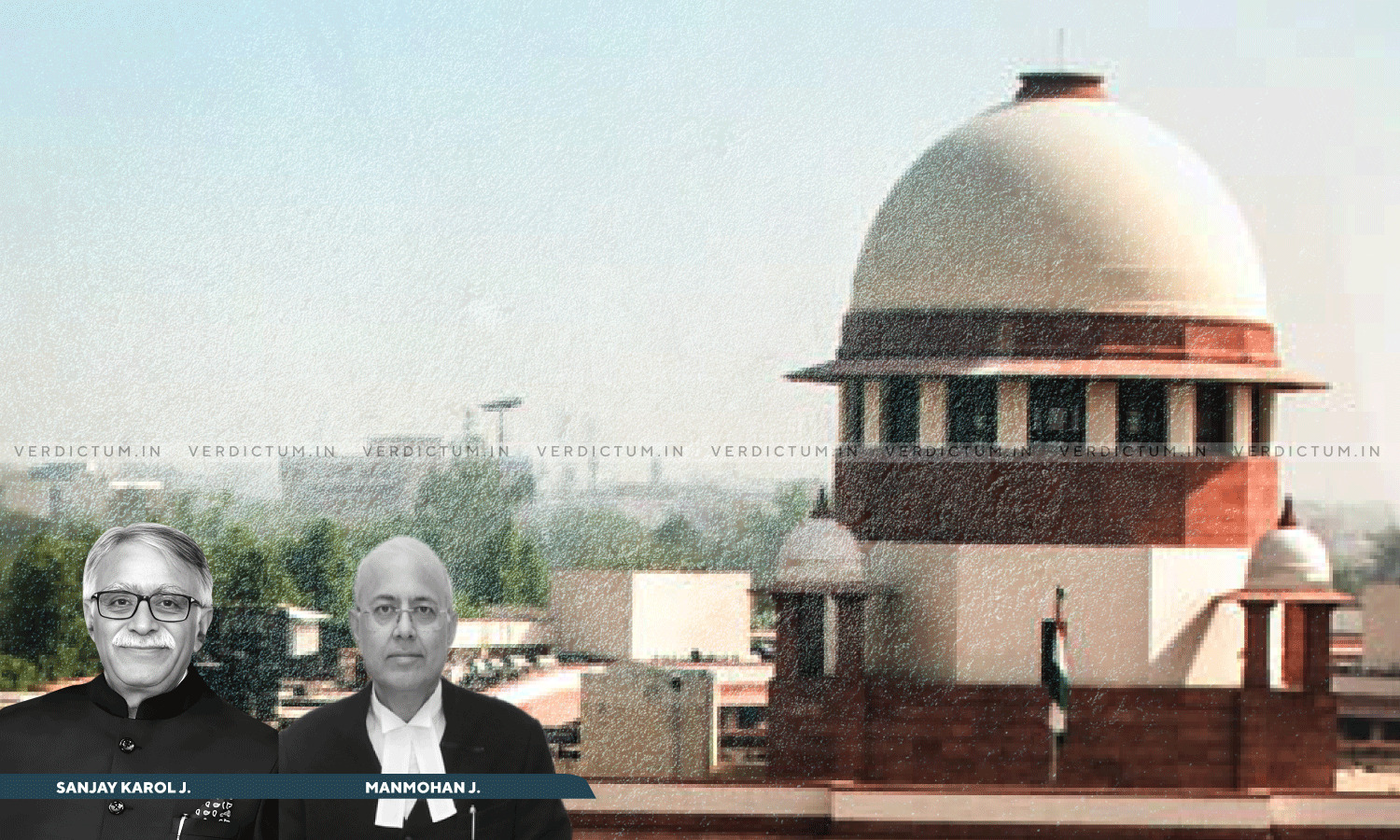Supreme Court Quashes Detention Order Under KAAPA

The Supreme Court has quashed a detention order passed under the Kerala Anti-Social Activities (Prevention) Act, 2007, after noting that the facts & circumstances did not fall under the category of a public order situation. The Apex Court reiterated that the provision for preventive detention is an extraordinary power in the hands of the State that must be used sparingly.
The appeal before the Apex Court was filed against the judgment of the Kerala High Court whereby the order of the District Magistrate directing the husband of the appellant, Rajesh, to be kept under preventive detention in prison in terms of Section 3 of the Kerala Anti-Social Activities (Prevention) Act, 2007, was affirmed.
The Division Bench of Justice Sanjay Karol and Justice Manmohan held, “ In consonance with the above expositions of law, in our view, the attending facts and circumstances do not fall under the category of a public order situation. The observations made in the detention order do not ascribe any reason as to how the actions of the detenu are against the public order of the State. As discussed above, given the extraordinary nature of the power of preventive detention, no reasons are assigned by the detaining authority, as to why and how the actions of the detenu warrant the exercise of such an exceptional power.”
Advocate Ajay Prabu represented the Appellant while AOR Harshad V. Hameed represented the Respondent.
Factual Background
The detenue has been running a registered lending firm. The District Magistrate issued an order of detention under Section 3(1) t, in furtherance of a Recommendation of the District Police Head. It was stated therein that the detenu is a ‘notorious goonda’ of the district and is a threat to society at large. Consequently, the detainee was taken into custody. Aggrieved by the order of detention, the appellant filed a writ petition before the High Court, but the same was dismissed. Aggrieved thereof, the appellant preferred an appeal before the Court. The significant point of challenge taken by the appellant was that in all cases against the detenu, he is on bail and is complying with the conditions laid down by the Court.
Reasoning
The Bench, at the outset, explained, “It is well settled that the provision for preventive detention is an extraordinary power in the hands of the State that must be used sparingly. It curtails the liberty of an individual in anticipation of the commission of further offence(s), and therefore, must not be used in the ordinary course of nature. The power of preventive detention finds recognition in the Constitution itself, under Article 22(3)(b). However, this Court has emphasized in Rekha v. State of Tamil Nadu that the power of preventive detention is an exception to Article 21 and, therefore, must be applied as such, as an exception to the main rule and only in rare cases.”
Referring to Section 2(j), the Bench held that a person who indulges in activities “harmful to maintenance of public order” is sought to be covered by the Act. The Bench noted that the observations made in the detention order did not specify any reason as to how the detenu’s actions were against the public order of the State.
“Keeping in view the above expositions of law, we have no doubt that the order of detention cannot be sustained. The circumstances pointed out in the order by the detaining authority may be ground enough for the State to approach the competent Courts for cancellation of bail, but it cannot be said that the same warranted his preventive detention. We clarify that if such an application for cancellation of the detenu’s bail is made by the respondent-State, the same must be decided uninfluenced by the observations made hereinabove”, it held.
Thus, allowing the appeal, the Bench set aside the impugned detention order as well as the order passed by the High Court.
Cause Title: Dhanya M v. State of Kerala & Ors. (Neutral Citation: 2025 INSC 809)
Appearance:
Appellant: Advocate Ajay Prabu, AOR R. Shase
Respondent: AOR Harshad V. Hameed





